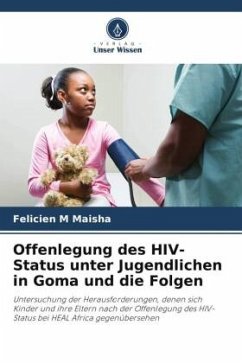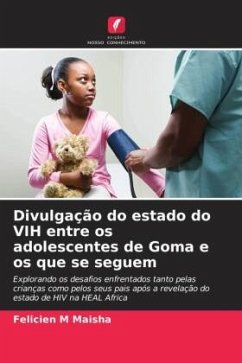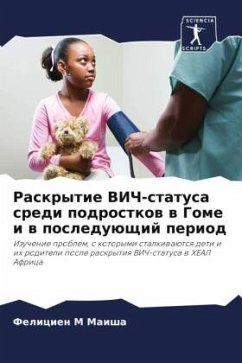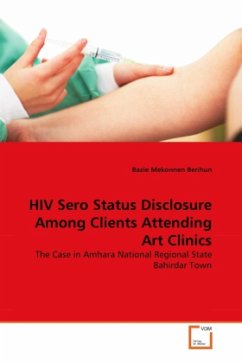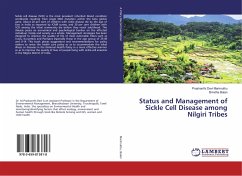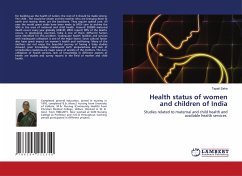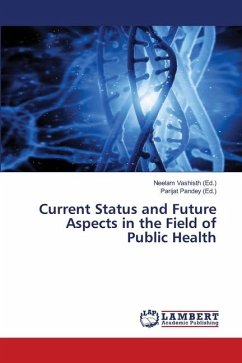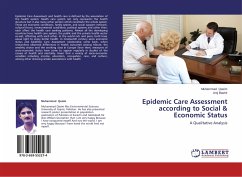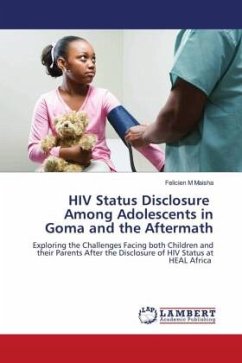
HIV Status Disclosure Among Adolescents in Goma and the Aftermath
Exploring the Challenges Facing both Children and their Parents After the Disclosure of HIV Status at HEAL Africa
Versandkostenfrei!
Versandfertig in 6-10 Tagen
20,99 €
inkl. MwSt.

PAYBACK Punkte
10 °P sammeln!
This research conducted at HEAL Africa (Children AIDS programme) is about the announcement of HIV/AIDS diagnosis to children aged 12 to 15 years. HIV status disclosure is a practice initiated in this clinic to facilitate the children understanding of antiretroviral therapy and enhance their adherence for better results. In addition, this process is important as through it, children have to face for the first time a very hard situation; receiving a diagnosis of an incurable disease: HIV and AIDS.This research is a case study of 21 children whose HIV status was disclosed in the last 3 years at t...
This research conducted at HEAL Africa (Children AIDS programme) is about the announcement of HIV/AIDS diagnosis to children aged 12 to 15 years. HIV status disclosure is a practice initiated in this clinic to facilitate the children understanding of antiretroviral therapy and enhance their adherence for better results. In addition, this process is important as through it, children have to face for the first time a very hard situation; receiving a diagnosis of an incurable disease: HIV and AIDS.This research is a case study of 21 children whose HIV status was disclosed in the last 3 years at the clinic. In-depth interviews with children were conducted, and a focus group discussion with parents was made to identify issues not raised by children. The results of this study revealed a conflict between parent and their children after the disclosure, both children and their parents face psychological trauma.Mostly children lost self-esteem, became rebellious to their parents and sometimes not tolerant to antiretroviral treatment because of revolt and anger.Because of a shortage of counsellors, the clinic had difficulties to provide needed support to children and their parents.



